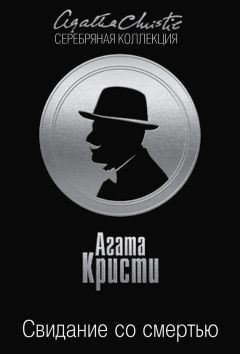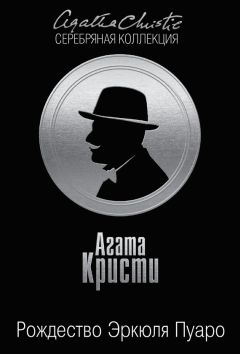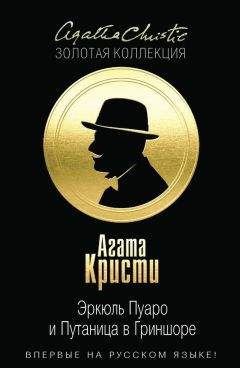Arthur Conan Doyle - Английский язык с Шерлоком Холмсом. Собака Баскервилей
"Now, for some space the revellers stood agape (некоторое время сотрапезники его стояли в нерешительности; space — пространство; промежуток времени; agape — разинув рот; to revel — пировать, бражничать; кутить), unable to understand all that had been done in such haste (не способные понять ничего, «что делалось» в такой спешке). But anon their bemused wits awoke to the nature of the deed (но вскоре их отупевший рассудок /начал/ осознавать, какого рода это дело; to bemuse — ошеломлять; притуплять; to awake — будить; понимать, осознавать) which was like to be done upon the moorlands (которое должно произойти: «быть сделано» на болотах; like — вероятно, возможно; moorland — болотистые земли). Everything was now in an uproar (теперь все зашумели: «всё зашумело»; uproar — шум, гул), some calling for their pistols (одни требовали пистолеты), some for their horses (другие — коней), and some for another flask of wine (а третьи — еще бутылку вина). But at length some sense came back to their crazed minds (но наконец немного рассудка вернулось в их одурманенные головы; to craze — сводить/сходить с ума; ослаблять /устар./), and the whole of them, thirteen in number (и все они, числом тринадцать), took horse and started in pursuit (вскочили на коней и пустились в погоню; to take horse — сесть на лошадь; to start — начинать; бросаться). The moon shone clear above them (луна над ними ярко сияла; to shine), and they rode swiftly abreast (и они быстро скакали в ряд; to ride), taking that course which the maid must needs have taken (выбрав то направление, которое непременно должна была выбрать девушка; needs — обязательно, непременно) if she were to reach her own home (если она /рассчитывала/ добраться до своего дома; to reach — дотягиваться; доходить, достигать).
agape [ǝˈɡeɪp], pursuit [pǝˈsju:t], abreast [ǝˈbrest]
"Now, for some space the revellers stood agape, unable to understand all that had been done in such haste. But anon their bemused wits awoke to the nature of the deed which was like to be done upon the moorlands. Everything was now in an uproar, some calling for their pistols, some for their horses, and some for another flask of wine. But at length some sense came back to their crazed minds, and the whole of them, thirteen in number, took horse and started in pursuit. The moon shone clear above them, and they rode swiftly abreast, taking that course which the maid must needs have taken if she were to reach her own home.
"They had gone a mile or two (они проскакали милю или две) when they passed one of the night shepherds upon the moorlands (когда повстречали на болотах одного из ночных пастухов; to pass — проходить, проезжать мимо), and they cried to him to know if he had seen the hunt (и они окликнули его, чтобы узнать, /не/ видел ли он погони; hunt — охота, ловля; поиски). And the man, as the story goes (а тот человек = пастух, как гласит легенда; story — повесть, рассказ; предание), was so crazed with fear that he could scarce speak (настолько обезумел от страха, что едва мог говорить), but at last he said (но наконец он сказал) that he had indeed seen the unhappy maiden (что, действительно, видел несчастную девушку), with the hounds upon her track (по следам которой /мчались/ собаки). 'But I have seen more than that,' said he (но я видел и еще кое-что: «более того», — сказал он), 'for Hugo Baskerville passed me upon his black mare (Хьюго Баскервиль промчался мимо меня на своей черной кобыле), and there ran mute behind him such a hound of hell (а за ним молча гналась собака — такое адское /создание/; to run — бежать; преследовать, гнаться) as God forbid should ever be at my heels (которое, упаси Господи, когда-нибудь /увидеть/ у себя за спиной; God forbid — Боже сохрани; to be at someone’s heels — следовать по пятам).'
shepherd [ˈʃepǝd], fear [ˈfɪǝ], forbid [fǝˈbɪd]
"They had gone a mile or two when they passed one of the night shepherds upon the moorlands, and they cried to him to know if he had seen the hunt. And the man, as the story goes, was so crazed with fear that he could scarce speak, but at last he said that he had indeed seen the unhappy maiden, with the hounds upon her track. 'But I have seen more than that,' said he, 'for Hugo Baskerville passed me upon his black mare, and there ran mute behind him such a hound of hell as God forbid should ever be at my heels.'
"So the drunken squires cursed the shepherd and rode onwards (но пьяные сквайры обругали пастуха и поскакали дальше; to ride). But soon their skins turned cold (но вскоре у них мороз пробежал по коже: «их кожа сделалась холодной»), for there came a galloping across the moor (ибо со стороны болот до них донесся стук копыт; to gallop — скакать галопом/во весь опор), and the black mare, dabbled with white froth (и черная кобыла, вся в «белой» пене; to dabble — забрызгивать), went past with trailing bridle and empty saddle (промчалась мимо с брошенными поводьями: «волочащейся уздечкой» и пустым седлом; to go). Then the revellers rode close together (тут гуляки сбились в кучу: «подъехали близко друг к другу»; to ride), for a great fear was on them (ибо сильный страх охватил их: «был на них»), but they still followed over the moor (но они продолжили свой путь по болотам; still — все еще; to follow — следовать), though each, had he been alone (хотя каждый /из них/, будь он сам: «в одиночестве»), would have been right glad (был бы очень рад; right — в большой степени, очень) to have turned his horse's head (повернуть назад «голову лошади»). Riding slowly in this fashion (медленно продвигаясь /вперед/ таким образом; fashion — форма; манера поведения, образ действия) they came at last upon the hounds (они наконец наткнулись на собак; to come upon — неожиданно встретить). These, though known for their valour and their breed (собаки, известные = славившиеся своим бесстрашием и /чистотой/ породы), were whimpering in a cluster (скулили, /сбившись/ в кучу; cluster — кисть, гроздь; группа, скопление) at the head of a deep dip or goyal, as we call it (на краю: «на вершине» спуска в глубокий овраг или гойл, как у нас его называют; head — голова; верхняя часть; dip — снижение; углубление, впадина), upon the moor (у /самого/ болота), some slinking away and some, with starting hackles and staring eyes (некоторые отбегали крадучись, а другие со вздыбленной шерстью и испуганными глазами; to start — начинать; вздрагивать, содрогаться; staring — широко раскрытый /о глазах/), gazing down the narrow valley before them (смотрели вниз на узкую лощину перед ними).
curse[ˈkǝ:s], froth [ˈfrɔƟ], alone [ǝˈlǝun]
"So the drunken squires cursed the shepherd and rode onwards. But soon their skins turned cold, for there came a galloping across the moor, and the black mare, dabbled with white froth, went past with trailing bridle and empty saddle. Then the revellers rode close together, for a great fear was on them, but they still followed over the moor, though each, had he been alone, would have been right glad to have turned his horse's head. Riding slowly in this fashion they came at last upon the hounds. These, though known for their valour and their breed, were whimpering in a cluster at the head of a deep dip or goyal, as we call it, upon the moor, some slinking away and some, with starting hackles and staring eyes, gazing down the narrow valley before them.
"The company had come to a halt (/вся/ компания остановилась), more sober men, as you may guess (люди /стали/ трезвее, как вы можете догадаться), than when they started (чем /были/, когда оправлялись /в погоню/). The most of them would by no means advance (большинство из них отнюдь не /собирались/ двигаться дальше), but three of them, the boldest (но трое «из них», самые смелые), or it may be the most drunken (или, может быть, самые хмельные), rode forward down the goyal (поскакали вперед в лощину). Now, it opened into a broad space (и вот, им открылась широкая поляна; space — пространство, место) in which stood two of those great stones (на которой стояли два огромных камня), still to be seen there (/их/ все еще /можно/ увидеть там), which were set by certain forgotten peoples in the days of old (поставленные какими-то забытыми людьми в незапамятные времена: «в дни старины»). The moon was shining bright upon the clearing (луна ярко светила над поляной; clearing — участок земли, очищенный от деревьев и кустарника; поляна), and there in the centre lay the unhappy maid (и там в центре = посреди которой лежала несчастная девушка) where she had fallen, dead of fear and of fatigue (там, где она упала замертво от страха и усталости).
sober [ˈsǝubǝ], [brɔ:d], fatigue [fǝˈti:ɡ]
"The company had come to a halt, more sober men, as you may guess, than when they started. The most of them would by no means advance, but three of them, the boldest, or it may be the most drunken, rode forward down the goyal. Now, it opened into a broad space in which stood two of those great stones, still to be seen there, which were set by certain forgotten peoples in the days of old. The moon was shining bright upon the clearing, and there in the centre lay the unhappy maid where she had fallen, dead of fear and of fatigue.
"But it was not the sight of her body (но не вид ее /мертвого/ тела), nor yet was it that of the body of Hugo Baskerville lying near her (и не /вид/ тела Хьюго Баскервиля, лежащего рядом), which raised the hair upon the heads of these three dare-devil roysterers (/заставили/ подняться волосы на головах этих трех отчаянных гуляк; to roister — бесчинствовать, вести разгульную жизнь; кутить, бражничать), but it was that, standing over Hugo (а это было то, что стояло над Хьюго), and plucking at his throat (терзая его глотку; to pluck — собирать; дергать), there stood a foul thing, a great, black beast (там стояло омерзительное существо, огромный черный зверь; thing — вещь, предмет; создание, существо), shaped like a hound, yet larger than any hound (по виду похожее на собаку, однако крупнее любой собаки; to shape — принимать форму, вид) that ever mortal eye has rested upon (какую когда-либо доводилось видеть смертному «глазу смертного»; to rest upon — останавливаться, быть прикованным /о взгляде, мыслях/). And even as they looked the thing tore the throat out of Hugo Baskerville (и прямо когда они смотрели = прямо у них на глазах эта тварь вырвала глотку Хьюго Баскервиля; to tear — рвать), on which, as it turned its blazing eyes and dripping jaws upon them (на что = и тогда, когда она повернула к ним /морду/ с горящими глазами и челюстями, /с которых/ капала /кровь/), the three shrieked with fear (эти трое дико вскрикнули от страха) and rode for dear life, still screaming, across the moor (и, крича, поскакали во весь опор через болота; to ride; for dear life — изо всех сил, сломя голову; still — все еще; по-прежнему). One, it is said, died that very night of what he had seen (один, как говорят, умер в ту же ночь от того, что увидел = не перенеся увиденного), and the other twain were but broken men for the rest of their days (а двое других были = остались лишь сломленными людьми до конца своих дней: «на протяжении остатка своих дней»; broken — разбитый, сломленный; rest — остаток).




